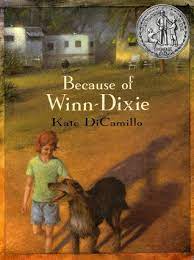The Power of Reading
During my teaching career, I taught hundreds of students to read. Some dove in easily. Some waded in slowly, learning alphabet sounds, adding a few words, taking the plunge into easy-readers, finally arriving at the shore of chapter books — the holy grail of elementary school students.
While teaching my students the mechanics of reading, I also taught them the joys and purposes of reading. We shared many adventures, real and imaginary, with picture books. We traveled the world with maps and stories of faraway places. We painted pictures in our minds through poetry. We journeyed back in time (and into the future) with historical texts and speculative fiction. We put on our imaginary white coats to become scientists, our hiking boots to climb mountains, our space suits to land on Mars, and our scuba gear to explore the bottom of the sea.
Joy and information are important reasons for reading but there was one more reason to read that I wanted to impress upon my students — the power to find out for yourself.
In the distant past, few people could read. Information came from others whose agendas might benefit by keeping people in ignorance. People who don’t know their rights cannot ask for them. At one time in the United States, it was a crime to teach enslaved people to read. Enslavers had truths they would rather keep hidden. They engaged preachers who read passages from the Bible that seemed to condone slavery. Denying people the right to find out for themselves kept them enslaved.
Booker T. Washington was born in 1856 when slaves were denied the right to read. Freed from bondage by the Emancipation Proclamation when he was nine years old, Booker wanted to read. In her picture book, More Than Anything Else,” Marie Bradby tells the story of Booker’s striving to learn to read while working from dawn to dark shoveling salt into barrels. Seeking out traveling teachers and books, Booker taught himself to read. He put his skills to good use, working his way through school and earning college degrees. He then founded schools to teach others to read and much more.
When freed from the bondage of having to find out from others, new readers made great strides. Washington wrote: “The Negro worshipped books. We wanted books, more books. The larger the books were the better we like[d] them. We thought the mere possession and the mere handling and the mere worship of books was going, in some inexplicable way, to make great and strong and useful men of our race.”
Being able to read gives people the right to find out for themselves. The agendas of others can no longer color what you learn. Reading frees you from pundits’ opinions, the narrowing of knowledge propaganda promotes, the spin of politicians, and entrapment by conspiracy theorists. Readers can check sources, research further, weigh information, and judge for themselves.
The ability to find out for yourself should not be wasted. If you can read, you can find out more. Reading makes people “great and strong and useful.” More than anything else, knowing how to read gives you power. Use your power well.







